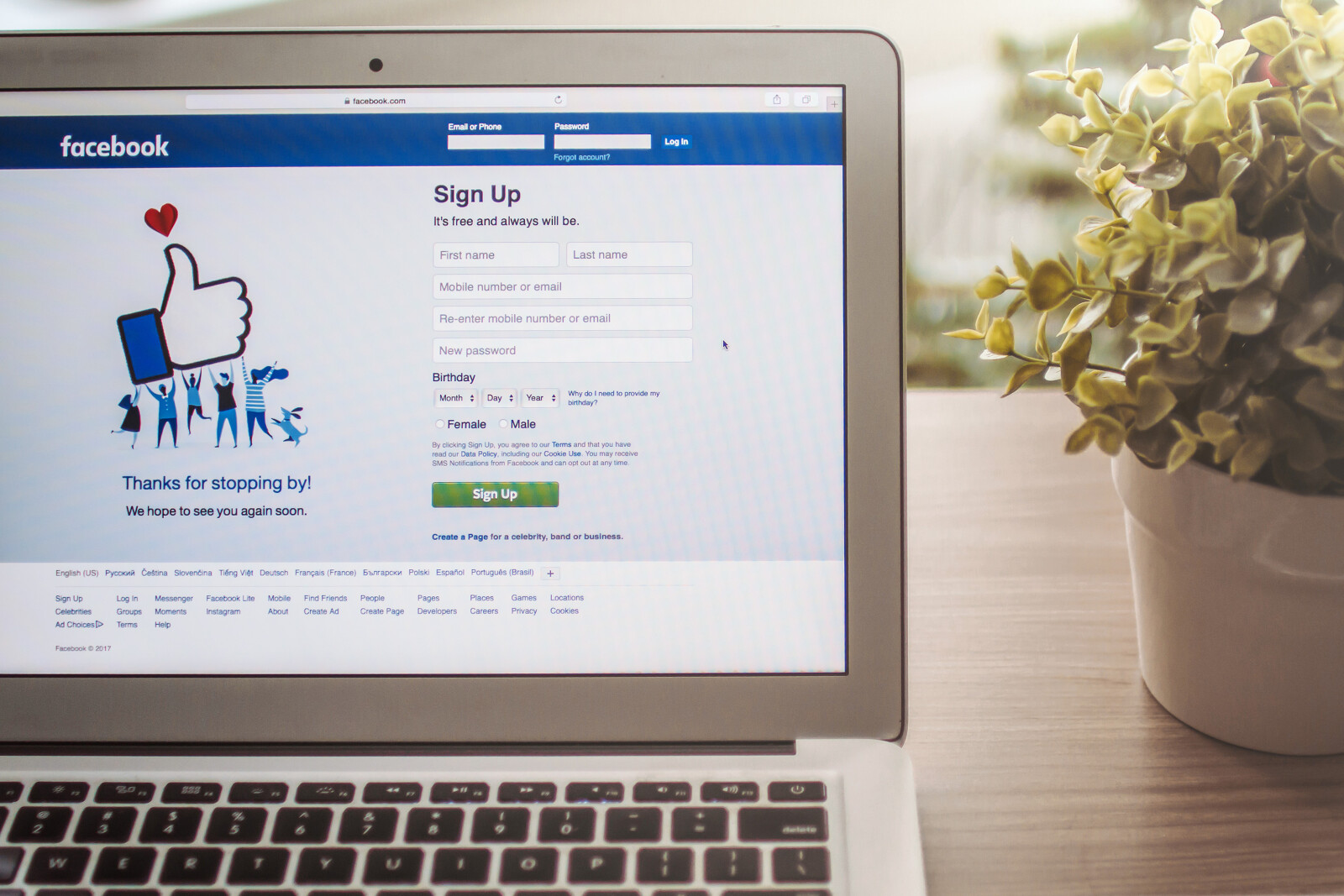Class Action Lawsuits Unveiled: Hospitals Secretly Sharing Patients’ Private Data With Facebook
In an alarming revelation, hospitals are reportedly sharing patients' confidential data with Facebook, potentially violating privacy rights. This breach, potentially affecting millions, has prompted legal investigations and potential class action lawsuits. This article delves into the intricacies of this issue, from HIPAA violations to the role of Facebook's tracking pixel, and guides individuals who wish to participate in the investigation. Ethical data practices in healthcare are at stake here.

Overview of Potential Lawsuits
Numerous potential class action lawsuits are currently being examined by attorneys, focusing on the alleged illegal sharing of patients' private data by certain hospitals with Facebook. These investigations stem from potential privacy rights violations, where patient information may have been shared without consent or knowledge. If these allegations are substantiated, hospitals could face significant legal consequences. The potential lawsuits could compel these medical institutions to revise their data sharing practices to ensure patient privacy rights are respected. Furthermore, victims of such privacy breaches could be entitled to compensation. These potential legal actions underscore the critical importance of protecting patient data and respecting privacy rights in an increasingly interconnected digital landscape. Therefore, it is essential to closely monitor the development of these potential lawsuits.
Affected Patients and Hospitals
Individuals who have used certain hospital websites for booking appointments or accessing patient portals may unknowingly be victims of this alleged privacy violation. This raises serious implications for patient trust.
- Several hospitals are under scrutiny for potentially sharing confidential patient data with Facebook.
- The legal consequences for hospitals could be significant, including potential class action lawsuits.
- Investigations are targeting hospitals suspected of embedding Facebook's tracking pixel on their websites, a tool that could transmit private patient data.
- This violation not only undermines the trust patients place in healthcare institutions, but it also highlights the urgent need for better regulation of data-sharing practices in the healthcare sector.
Facebook’s Tracking Pixel Use
In the ongoing investigations, a key focus is the use of Facebook's tracking pixel by hospitals on their websites. This technology enables the social media giant to collect data from users visiting these health platforms, potentially breaching Facebook's data privacy policies. The pixel's implementation could lead to the unlawful exchange of confidential patient data, raising serious privacy concerns. Legal ramifications for hospitals may include breaches of Health Insurance Portability and Accountability Act (HIPAA) regulations, which explicitly prohibit the unauthorized sharing of protected health information. As class action lawsuits surface, hospitals may face significant penalties for these potential violations. This scenario underscores the need for more stringent monitoring and control over how hospitals use third-party tools, such as Facebook's tracking pixel.
Potential HIPAA Violations
Amidst these investigations, potential violations of the Health Insurance Portability and Accountability Act (HIPAA) emerge as a critical issue, given the Act's stringent regulations against unauthorized disclosure of protected health information.
- The reported sharing of patient data with Facebook may well contravene HIPAA's rules, sparking potential legal action.
- The breadth of the information allegedly disclosed, including medical conditions and appointment details, deepens patient privacy concerns.
- Legal proceedings could lead to significant penalties for hospitals found to be in violation of HIPAA, potentially compelling them to change their data sharing practices.
- This also underscores the urgency for healthcare institutions to review their compliance with privacy laws, to avoid potential costly litigation and damage to their reputation.
Extent of Data Sharing
The considerable extent of data sharing with Facebook, as unveiled by the investigations, raises serious questions about the depth and breadth of potential HIPAA violations by hospitals. The shared information is not just names and contact details, but includes sensitive health and medical data, such as patients' conditions, prescriptions, and even search terms used on hospital websites. This extensive data sharing poses significant risks and consequences to patients' privacy and confidentiality. The legal implications are equally alarming, including possible breaches of privacy laws and HIPAA regulations. As the cases unfold, hospitals could face severe penalties and lawsuits. This revelation underscores the need for stricter regulatory oversight in healthcare data management and sharing practices.
Types of Shared Information
With regard to the types of shared information, investigations reveal that beyond basic contact details, sensitive health and medical data, including conditions, prescriptions, and specific search terms used on hospital websites, are potentially being transmitted to Facebook.
- Medical Conditions: Detailed information about patients' health status and diseases is a significant concern, highlighting the risks of data sharing.
- Prescriptions: Information concerning prescribed medications could be used in targeted advertising, raising legal implications.
- Search Terms: The specific search terms used by patients on hospital websites can indicate sensitive health issues, thus risking patient confidentiality.
- Basic Contact Details: Although seemingly harmless, the sharing of basic contact details contributes to the broader privacy issues, setting precedents for potential misuse.
Sensitive Data Risk Exposure
Sensitive data risk exposure escalates as hospitals potentially share patients' private medical details with Facebook, jeopardizing the confidentiality and security of this information. The situation undermines the basic principles of data privacy and could result in severe legal implications for the implicated hospitals. While data sharing may enhance the efficiency of services, the alleged unethical and potentially illegal data sharing practices pose a significant threat to the privacy rights of patients. Such practices, if proven, may violate the Health Insurance Portability and Accountability Act (HIPAA). The unfolding investigations and possible class action lawsuits signal a watershed moment for data privacy in the healthcare sector. These developments highlight the urgent need for tighter regulations and more robust measures to protect sensitive patient data from unwarranted exposure.
IP Addresses and Identification
In this context, it's crucial to understand the potential implications of hospitals allegedly sharing not just sensitive health information, but also users' IP addresses with Facebook.
- IP addresses are unique identifiers for devices connected to the internet. This data coupled with personal health information can lead to severe privacy concerns, as it allows for precise identification and targeted advertisements or even potential data breaches.
- The legal implications of data sharing with Facebook are immense. If proven, hospitals could face substantial fines and severe reputational damage.
- Class action lawsuits could be initiated to seek compensation for privacy rights violations.
- Lastly, this could stimulate a broader conversation on data privacy in the healthcare sector, possibly leading to stronger regulations to protect patient data.
Impact of Class Action Lawsuits
The potential ramifications of these class action lawsuits extend beyond monetary compensation, potentially triggering significant changes in the healthcare sector's approach to data privacy. The key element in these lawsuits is the role of attorneys, who have a pivotal role in protecting patient privacy and holding hospitals accountable for their actions.
| Potential Impact | Effect |
|---|---|
| Monetary Compensation | Patients receive compensation for privacy rights violations. |
| Change in Hospital Operations | Hospitals will be forced to change their data sharing practices. |
| Protection of Patient Privacy | The lawsuits could lead to stronger regulations for patient data privacy. |
This may serve as a wake-up call for healthcare institutions, emphasizing the crucial importance of protecting patient information and adhering strictly to privacy laws and regulations.
Potential Compensation for Violations
Bearing in mind the significant consequences of these privacy violations, we now turn our attention to the potential compensation that could be awarded to those affected. The legal implications of hospitals sharing private patient data with Facebook are serious and could result in considerable compensation for the victims.
- Potential Damages: Compensation could cover emotional distress, identity theft, and other harms caused by privacy breaches.
- Class Action Payouts: If the class action lawsuit is successful, victims may receive a share of the financial settlement.
- Statutory Damages: In some jurisdictions, victims might be entitled to statutory damages per violation.
- Punitive Damages: In cases of egregious misconduct, courts may award punitive damages to deter such behavior in the future.
Changing Hospital Website Operations
While potential compensation for victims of these privacy breaches is significant, it is equally crucial to consider the possible changes to hospital website operations to prevent such violations in the future. In light of potential legal action, hospitals must prioritize privacy rights and cease any unauthorized data sharing. They must also reconsider their use of third-party trackers and ensure transparency in their data practices. Implementing robust privacy protection measures, including encryption and anonymization techniques, can secure sensitive data. Hospitals must also seek explicit consent from patients before sharing their data. Regular audits of data-sharing practices can further ensure compliance with privacy regulations, helping to avoid potential privacy rights violations and the resultant legal action.
Process for Filing Lawsuits
How, then, does one initiate the process of filing a class action lawsuit in such a case of potential privacy rights violation?
- Identify the violation: Identify the potential violation of privacy rights. This involves gathering evidence that proves the hospital shared your private data with Facebook without your consent.
- Consult with a lawyer: Seek legal advice to understand the process for filing claims and the possible legal remedies available. A lawyer can guide you on your rights and the nuances of class action lawsuits.
- File the claim: Your lawyer will prepare the necessary legal documents to initiate the class action lawsuit. This includes detailing the nature of the privacy violation and the harm it caused.
- Await court proceedings: Once the claim is filed, legal proceedings will commence. It's crucial to stay informed and participate actively.
Role of Individuals in Lawsuits
In what ways, then, can individuals play a vital role in such class action lawsuits concerning the alleged breach of privacy rights by hospitals? Individuals who suspect their privacy has been violated can take legal recourse by joining class action lawsuits. By doing so, they not only defend their own rights but also contribute to larger efforts that push for better protection of individuals' rights. They play a crucial role in exposing unethical practices, providing critical evidence to support the case. Additionally, individuals can spread awareness about such infringements, prompting others who may have been similarly affected to come forward. Ultimately, their active participation and engagement in these lawsuits can influence court rulings, force changes in hospital policies, and ensure stringent adherence to privacy laws.
Getting Involved in Investigation
Participation in the ongoing investigation into hospitals' alleged privacy violations is instrumental in holding these institutions accountable for their actions. By getting involved, individuals can ensure that their rights are protected and the legal implications of data sharing are fully understood and addressed.
- To participate, individuals are encouraged to fill out a provided form. This form aids in initiating contact with the attorneys handling the investigation.
- This form asks for basic contact information, including name, email, phone number, and zip code. Confidentiality is ensured, demonstrating how to protect patient privacy.
- Participants should specify the hospital in question. This information will be invaluable in determining the scope of the investigation.
- The submitted information is then forwarded to the law firm sponsoring the investigation, facilitating an open line of communication and active participation in the process.
Information Required for Participation
Providing accurate and detailed information is a crucial step in the process of participating in the ongoing class action lawsuit investigation. To participate, individuals would need to deliver their full name, contact details, and specify the hospital in question. This initial step could lead to substantial benefits of joining a class action lawsuit, such as potential compensation for violations of privacy rights. It also enables the necessary legal examination of the extent and implications of sharing patient data. The submitted information is forwarded to the law firm conducting the investigation, ensuring confidentiality and using it solely for the purpose of the lawsuit. Thus, your participation can potentially contribute to holding hospitals accountable for unauthorized data sharing practices.
Frequently Asked Questions
What Is Facebook’s Role and Responsibility in This Data Sharing Issue?
Facebook's role in this data sharing issue is integral, as it is the recipient of the allegedly illegally shared data. As such, it bears responsibility to ensure data received complies with privacy laws. Facebook's accountability is critical in preventing data misuse consequences. If found complicit, Facebook could face regulatory penalties, damage to its reputation, and a loss of user trust. Ultimately, it is essential for Facebook to uphold ethical data practices to maintain user privacy.
Are There Any Other Social Media Platforms Involved in Similar Data Sharing Practices With Hospitals?
Though the current investigation focuses on Facebook, it is crucial to consider the broader landscape of data monetization tactics. Other social media platforms could potentially engage in similar practices with hospitals or other entities. This raises significant concerns about social media ethics, privacy rights, and the need for more stringent regulations to protect consumer information. As technology evolves, it's important to ensure that the confidentiality of personal data remains a priority across all platforms.
What Safeguards or Measures Can Hospitals Implement to Prevent Such Privacy Breaches in the Future?
To prevent future privacy breaches, hospitals should consider implementing robust safeguards such as data encryption solutions. These solutions can protect patient information from unauthorized access. Additionally, refining patient consent policies can ensure that patients are fully aware and in control of where their data is shared. Regular audits of data-sharing practices and partnerships can also help in identifying potential privacy risks and mitigating them promptly.
How Does the Sharing of Such Information Impact the Patients and Their Privacy Rights?
The sharing of patient information presents significant data monetization risks. It infringes on patients' privacy rights, possibly exposing sensitive health data. Ethically, this sharing is questionable as it occurs without explicit patient consent. The unauthorized dissemination of personal health information could lead to public distrust in healthcare institutions, potential misuse of data, and even identity theft. Patients are entitled to privacy and confidentiality, which are compromised in these situations.
Are There Any Laws Other Than HIPAA That Are Potentially Being Violated by These Hospitals in Sharing Data?
Aside from HIPAA, the potential violation of other laws, such as state privacy laws and the Federal Trade Commission Act, is under investigation. Data brokering consequences are significant, potentially leading to identity theft, discrimination, or unwanted targeted advertising. The legal implications analysis further indicates potential breaches of consumer protection laws, data breach notification laws, and laws regarding unfair and deceptive business practices. Hospitals' illicit data-sharing with Facebook could trigger a multitude of legal ramifications.

This post has been generated by AI and was not reviewed by editors. This is Not legal advice. Please consult with an attorney.




